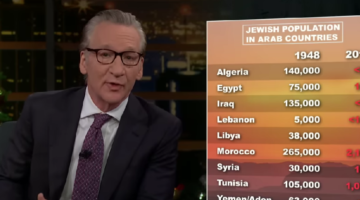My friends, you have read Frumspeak, behold, the MO version…
The Rav – The single most influential leader of the Modern Orthodox movement, ever. His legacy, and opinion on any issue of import, is the subject of endless debate amongst his students, who span the gamut of Jewish religious life. May be known as Rabbi Dr. Joseph B. Soloveitchik, HaRav Yosef Dov HaLevi Soloveitchik or Reb Yoshe Ber, depending on which of the purported thousands of students one speaks to. Modern Orthodox people love to be offended by the ignorant Yeshivish kids who refer to him as JB. Any book by or about him is an essential component of the Modern Orthodox library, even though most of those who own them will never read them and secretly find them boring. [See Lonely Man of Faith.]
RJJ Journal (aka “Journal of Halacha and Contemporary Society”) – Forum by which any New York area physician can show off his ability to use both the Bar Ilan Responsa Project and the Journal of the American Medical Association.
Duality (or “tension”) – Expression Gushies use in divrei Torah when they are trying to sound like Rav Aharon Lichtenstein.
What about the Meiri? – Expression used by Modern Orthodox people of a more intellectual bent who are troubled by the attitudes of religious Jews toward non-Jews, or by statements of Chazal that speak of non-Jews unfavorably. The Meiri refers to Rabbi Menachem ben Solomon haMeiri (1249-1316), a Provencal commentator on the Talmud. The statement by him indicated in the question [located in Beis ha-Bechirah, Avodah Zarah 26a], which many who quote it have never actually seen, says that non-Jews who adhere to a religious code are not idol-worshippers. Many who quote this Meiri have never actually met, or had extensive dealings with any non-Jews.
Lonely Man of Faith – Essay by The Rav. Required reading for anyone who considers him or her self to be intellectual yet Modern Orthodox (who are probably the only people that will understand all of it and not find it boring or cold). Force-fed to high school kids in Modern Orthodox high schools, and is way above their heads.
Yeshivish – This term, when used by Modern Orthodox people, refers to anyone who wears a black hat. When a girl who flipped out in (fill in name of Seminary) uses this term to describe the type of guy she wants to marry, she means a guy who went to Frisch, Flatbush or MTA, flipped out in Israel and now wears a black hat. This same young woman would be at a total loss if she were to be set up with an actual Yeshivishe guy, who would in all likelihood find her too modern anyway.
Shtark – Term used by Modern Orthodox young people when they want to sound Yeshivish, or have flipped out in Israel and are trying their hardest to be Yeshivish. The actual term means “strong” in Yiddish, and connotes someone who learns a lot of Torah. This term can actually apply to women who are quite frum, or even working men who are kove'a ittim.
Flipped out – When the product of a Modern Orthodox high school attends a Yeshiva or Seminary in Israel, and adopts the outlook and dress of Chareidim, they are described as having flipped out. Often, such an individual will engage in protracted battles with his/her parents over the subject of attending YC/Stern, and learning in Kollel/marrying someone who does. This phenomenon is the subject of much hand-wringing and many scholarly articles in Jewish education publications, although they never use this specific term.
Yeshivat Chovevei Torah (“Chovevei,” “YCT,”) – The Open Orthodox Rabbinical Seminary. Started as a response to the apparent righward shift of YU. Whenever a left-leaning student in YU is unhappy, he threatens to leave for this institution when he graduates.
Academic Talmud (“Mehqar”) – The study of Talmud in an historic context, analyzing each statement to determine what period in history it came from, and what ramifications that has. A convenient way to avoid an actual analysis of what the Gemara is saying.
Daas Torah (“Daat Torah”) – The meaning of this term (and what the Rav felt about it) is the subject of much debate among Modern Orthodox Jews, many of whom feel vaguely guilty that they don't adhere to it. If this term comes up in a conversation between two Modern Orthodox “intellectuals,” they are likely referring to an article with that name written by Rabbi Dr. Lawrence Kaplan.
Seridei Eish – Collection of responsa by Rav Yechiel Yaakov Weinberg. The author is a darling of the Modern Orthodox movement, because with his Slabodka Yeshiva background yet Berlin Rabbinical Seminary teaching, he is considered one of their forbears. The piskei halakha in collection of responsa (as are those in the Iggros Moshe) are often used as post-facto justification of what might otherwise be considered extremely problematic.
Chabad – Their incredible success (and incidentally, their overt or covert Messianism, the subject of Rabbi Dr. David Berger's recent highly controversial work) makes this a dirty word in Modern Orthodox circles. Modern Orthodox Jews often decry the lack of similar commitment and dedication displayed by Chabad shluchim within their own ranks, but would be extremely upset in the event that their children decided to do something similar.
Aliyah – What every Modern Orthodox person professes to want to make, but keeps putting off despite their best intentions.
from: http://ajhistory.blogspot.com/2005/03/modernorthodoxisms.html








